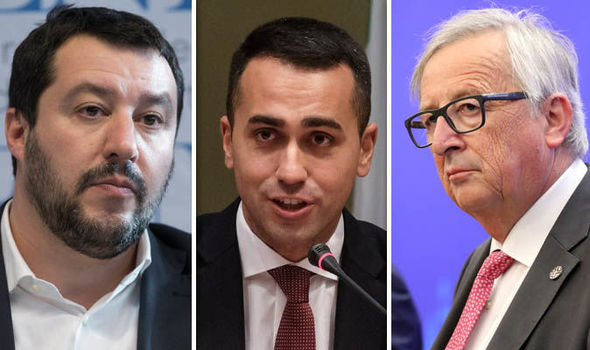Italy’s political crisis has struck European financial markets. Markets turned sour on Monday in response to Italy’s fresh political crisis sparked by the collapse of a populist coalition amid mounting concern that the country will be thrown into fractious early elections.
The euro, which Italy uses as its currency along with 18 other countries, dropped to its lowest level against the US dollar for 10 months at €1.154.
The crisis was set off late last week when the Five Star Movement (M5S) and Lega, which had been attempting to form a government, insisted that the president, Sergio Mattarella, approve their choice for finance minister, Paolo Savona, a fierce critic of the euro. Mattarella vetoed the nomination and the incoming populist government collapsed before it had taken power.
Strategist Jeff Rosenberg said the market response to Italy’s populist coalition collapse indicated a “realisation” there could be a referendum to leave the European Union.
Markets around the world were also shaken with the Dow Jones industrial average in New York falling almost 400 points, or 1.58% on Tuesday as investors shifted money into the safe haven of US bonds, putting pressure on bank shares.
Stock markets in Asia also dropped sharply at the opening of trade on Wednesday. The Nikkei in Tokyo was off 1.3% while the ASX200 in Sydney fell 0.6%. The Kospi index in Seoul was down 1.57%.
Ignazio Visco, the Bank of Italy chairman, said the country was at risk of losing the “asset of trust” with investors. On Tuesday the Italian bond spread, a leading indicator of investor concern, rose to its highest level in four years.
In Brussels, politicians were supportive of Mattarella’s move, which was seen as protecting Italy’s position in the eurozone. But there was also concern that the populist parties could win a bigger parliamentary majority in the new election, creating a bigger risk for the future of the eurozone.
>Juthy Saha













